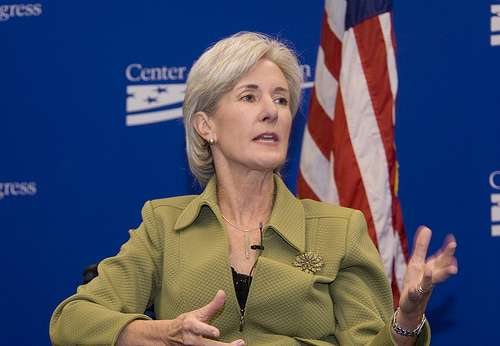The Myth of Obamacare's Health Care Cost Control

On Obamacare's third birthday last month, Health and Human Services Secretary Kathleen Sebelius tried to pin recent slowdowns in health spending on the president's health care overhaul. "What's already in place," she said in an appearance on MSNBC's Morning Joe, "is really beginning to help people."
She went on to list a handful of the law's benefits and programs, and she finished with this: "What we're seeing," she said, "is costs really come down for the first time in a very long time. Medicare costs are significantly lower than they were. The cost trajectory is down."
It is. But probably not, for the most part, as a result of Obamacare. A study released this week by the Kaiser Family Foundation notes that from 2009 to 2011, national health spending grew at its lowest rate since the actuary's office at Medicare began tracking such spending. But the report finds that about 77 percent of that decline in growth can be explained by the economic downturn. Some of the decline is a result of health system changes, not all of which are even necessarily part of the health law (the slowdown, after all, began in 2009 before the law was passed), but the vast majority of the slowdown is a result of the sluggish economy.
As the report explains, "this has major implications for policy, since health spending growth is a major driver of federal and state budgets through the Medicare and Medicaid programs." The report expects spending to pick up again by the end of the decade.
Obamacare, in other words, has not fixed the bulk of the health spending problem, nor resolved Medicare's financing woes. Which is perhaps why some of the same activists who originally told us that we should pass Obamacare because it would help control costs are now suggesting that, since we've passed Obamacare, it's now time to start thinking about how to control costs.


Show Comments (38)